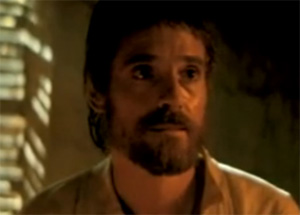 At the end of Roland Joffé's exquisite film, The Mission, a brief exchange between a Portuguese ambassador and a papal emissary sums up the tension between globalization (the movie's subject matter) and a worldview that recognizes -- belatedly -- the tragedy of ceding too much terrain (geographical and moral) to imperial interests:
At the end of Roland Joffé's exquisite film, The Mission, a brief exchange between a Portuguese ambassador and a papal emissary sums up the tension between globalization (the movie's subject matter) and a worldview that recognizes -- belatedly -- the tragedy of ceding too much terrain (geographical and moral) to imperial interests:
"We must work in the world, your eminence. The world is thus."
"No, Señor Hontar. Thus have we made the world ... thus have I made it."
The film was released in 1986 and is set in South America in the mid-1700s, but its themes and these haunting words persist. So much so that I was reminded of them as I listened to President Obama's speech on Monday -- his carefully-crafted plea for public support of the U.S. military's current "intervention" in Libya.
Obama is the imperial president -- just as every 20th- and 21st-century president before him has been. But he wears his emperor's clothes badly -- the hawkishness ill-fitting his frame, the clichéd rhetoric, and carefully-rehearsed vocal inflections unconvincing on his lips.
Nevertheless on Monday night our president insisted that conditions in Libya (a brutalized citizenry, murdered dissidents, the ruthless tactics of a tyrannical leader) necessitated swift military action. Obama ended his plea to the nation by insisting that "we have done the hard work of protecting our own people, as well as millions around the globe. We have done so because we know that our own future is safer and brighter if more of mankind can live with the bright light of freedom and dignity."
Would that President Obama just say the truth: that the decision to firebomb Libya with hundreds of Tomahawk cruise missiles cannot fit so easily into a tidy, moral narrative about freedom, dignity, and humanitarian need because it has to do fundamentally with imperial interests, American hegemony, and a global economy in which spiking oil prices and a destabilized OPEC nation could render us unable to fuel -- literally -- the American way of life.
And it's a decision complicated and compromised by the fact that the American military has not seen fit to intervene in a host of other dictatorial regimes (Sudan, Zimbabwe, Ivory Coast for starters) where the "conditions on the ground" are just as dire, if not more so, than those in Libya.
President Obama, like every recent president before him, laments the violence we must undertake for the sake of "global security" and "human freedom." Reluctantly, the United States must sometimes intervene in a world gone awry. The world, he suggests, is thus.
No, Mr. President -- thus have we made the world.
Debra Dean Murphy is assistant professor of religion at West Virginia Wesleyan College. She blogs at Intersections: Thoughts on Religion, Culture and Politics and at ekklesiaproject.org.
Got something to say about what you're reading? We value your feedback!